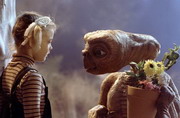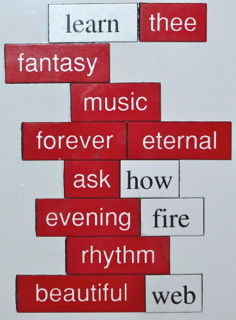After almost a year in beta, we now have over 3000 users and an active community of science fiction fans (as well as a few users that are actively working in this area) providing input, answers, moderation, blog posts and their own time to make the site a global success.
Congratulations to all the members – your effort has paid off, and today scifi.stackexchange.com has graduated from a beta Stack Exchange website to a full-fledged member of the Stack Exchange family.
What does this mean?
New design.

Be sure to check out the error, CAPTCHA (human verification), about, and 404 (page not found) pages, and check out the different look of meta (and, while you’re there, take a look at some of the hot meta questions).
Privileges have changed.
Now that we’re not a beta site, the privileges required to do certain things have increased. That means there are fewer people to do them, and you might not be able to do everything that you could yesterday.
If you see something problematic, please comment and flag. Your moderators will be happy to close, reopen, migrate, protect or delete questions or answers that need it, especially if there’s comments and/or flags from multiple users saying that’s what needs to happen.
Remember that anyone can edit. Even if you lost the edit privilege, you can still edit any answer or question – it’ll just go into a moderation queue to be verified first. Again, there are fewer people to work through these suggested edits now, too, so it might take a little longer for the suggestions to be processed, but generally our moderators are super fast, so you probably won’t wait long. If your edit is approved, you get reputation, so it’s another way to build up to the privilege level that you used to enjoy.
Vote Early, Vote Often, and Vote Some More. Voting builds reputation, which will help more users earn the privileges that let the site be more user-run than moderator-run. When you’ve run out of votes, find an unanswered or poorly answered question and answer it, to gather more reputation for yourself.
We’re linked in the footer of regular Stack Exchange sites
Hopefully we’ll get some new visitors as a result. Please take care to be even more friendly and helpful than you already are to help out our new members. In particular, if you down-vote or vote to close, please make sure that you leave a comment (or upvote an existing comment) explaining what’s wrong with the question/answer, so that we encourage better participation by these new users, rather than scare them away.
Let your friends and fellow fans know about the site (and the blog!) – we get around 1500 visits a day, but the more people who come, the wider the pool of expertise we can bring in. This is just one giant leap towards becoming the authoritative site for science fiction and fantasy questions – we still need to work hard to get the rest of the way.
Like this:
Like Loading...



